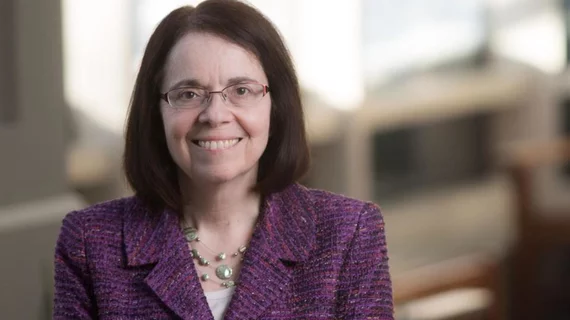Partners HealthCare names interim CEO
Anne Klibanski, MD, has been named interim president and CEO of Partners HealthCare. Klibanski’s current leadership responsibilities within the Partners system include research, academia and clinical work. She will succeed CEO David Torchiana, MD, who recently announced his plans to retire at the end of April.
Partners HealthCare is a not-for-profit healthcare system, which includes Brigham and Women’s Hospital and Massachusetts General Hospital (MGH) among its founding members.
Klibanski currently serves as the chief academic officer for Partners and has held this post since 2012. Additionally, she also serves as the chief of neuroendocrine at MGH, the Laurie Carrol Guthart professor of medicine at Harvard Medical School, and an academic dean for Partners at Harvard Medical School. She also serves on various boards and committees including the MGH General Executive Committee and the Board of Partners International, among others.
“Anne is one of our most experienced senior leaders as well as a distinguished clinician, researcher and teacher,” said Scott Sperling, chair of the Partners board of directors, in a prepared statement. “She has broad responsibility for many of our key missions and is a proven leader and manager of complex efforts with extensive experience overseeing large clinical and executive teams, crafting a systemwide approach to future state radiology, pathology and anesthesiology structure and investments.”
As the chief academic officer, Klibanski has management responsibilities for personalized medicine; the Partners Clinical Trials Office; Partners Innovation, including commercialization and licensing; research data science/digital health and research subject protection and graduate medical education and continuing professional development, according to the statement.
Klibanski received her bachelor’s degree in literature from Barnard College in New York City and her MD from New York University Medical Center.
“We have a strong team of more than 74,000 committed employees across our system, all working to provide outstanding patient care, develop innovative healthcare solutions, and improve the quality of life for those living in the communities where our patients live and work,” Klibanski said in the same statement. “I look forward to guiding Partners through this important transition as we chart our course for Partners’ future.”

